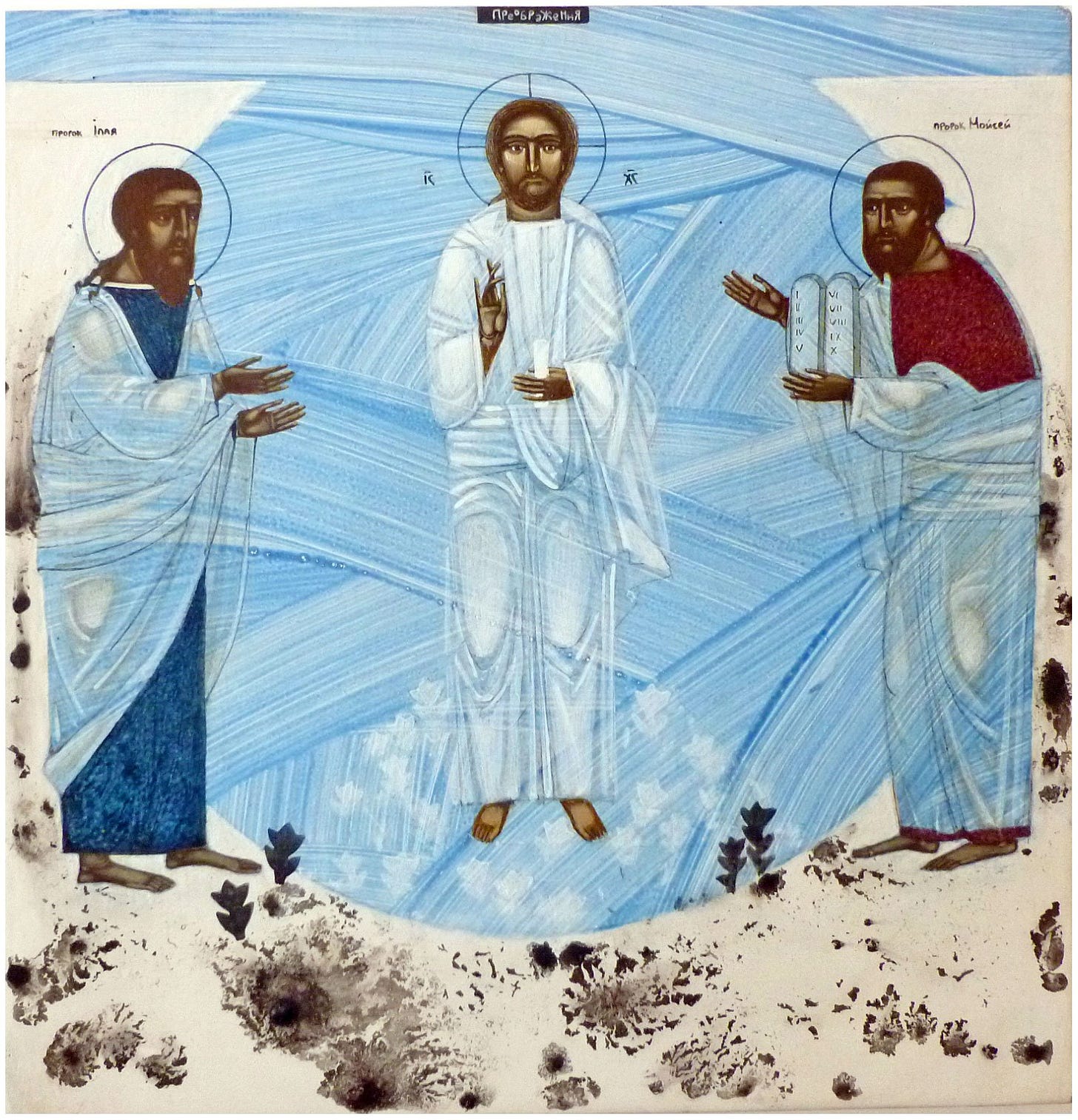The Way Down the Mount of Transfiguration is Almost Always a Descent into Moralism
The true glory of God is the Christ who delivers grace
Mark 9.2-9 — Transfiguration
The pivot between epiphany and lent is always turns on the transfiguration where the disciples behold Jesus, alongside Moses and Elijah, aflame with the glory of God but, like the burning bush, not consumed by it. For this year, the lectionary Gospel passage is Mark’s account of the Theophany:
Mark 9:2-9
Six days later, Jesus took with him Peter and James and John, and led them up a high mountain apart, by themselves. And he was transfigured before them, and his clothes became dazzling white, such as no one on earth could bleach them. And there appeared to them Elijah with Moses, who were talking with Jesus. Then Peter said to Jesus, "Rabbi, it is good for us to be here; let us make three dwellings, one for you, one for Moses, and one for Elijah." He did not know what to say, for they were terrified. Then a cloud overshadowed them, and from the cloud there came a voice, "This is my Son, the Beloved; listen to him!" Suddenly when they looked around, they saw no one with them any more, but only Jesus. As they were coming down the mountain, he ordered them to tell no one about what they had seen, until after the Son of Man had risen from the dead.
If you’ve endured more than a handful of sermons, then chances are you already know how the preaching from this point on the mountaintop is supposed to go. Preachers point the finger at Peter and chalk this episode up as yet another example of Peter getting Jesus all wrong. It’s not about the mountaintop experience; it’s about rolling up our sleeves and serving serve the least, the lost, and the left behind.
The way down the mountain is almost always a descent into moralism.
About how faith is about going back down into the valley of life to do the things upper middle class Christians aren’t embarrassed to affirm in front of their pagan co-workers.
Go back down the mountaintop, back into “real life,” and do like Christ.
Except—
If Peter is wrong, if this is nothing more than another example of how obtuse Peter is, then when Peter professes “Master, it is good for us to be here. Let us make three tabernacles, one for you, one for Moses and one for Elijah” why doesn’t Jesus correct him?
Why doesn’t Jesus rebuff Peter and say: ‘No, it is good for us to go back down the mountain to serve the least, the lost, and the lonely?’If Peter’s suggestion that they rest there is such a grave temptation, then why doesn’t Jesus exhort him like he does just before this scene and say: ‘Get behind me, Satan?’
This is the only instance in any of the Gospels where Jesus doesn’t respond at all to something that someone has said to him.
Keep reading with a 7-day free trial
Subscribe to Tamed Cynic to keep reading this post and get 7 days of free access to the full post archives.




